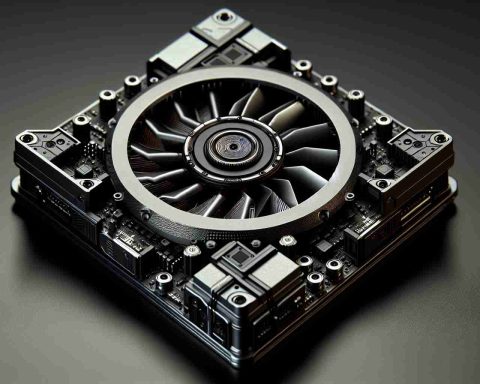The U.S. government’s latest move aims to clamp down on the covert flow of advanced semiconductor technologies into China. According to a recent report, the U.S. Department of Commerce has requested Nvidia to delve into the illegal entry of its products into China over the past year. This step forms part of a wider initiative to bolster the enforcement of U.S. export restrictions, a key element in the ongoing geopolitical and trade tensions.
To strengthen the investigation, the government has also enlisted major distributors such as Dell Technologies and Super Micro Computer. These companies have been urged to perform customer spot checks across Southeast Asia, seeking out potential vulnerabilities in the supply chain.
The situation underscores the persistent challenges companies face in adhering to international trade regulations, particularly as governments intensify their scrutiny of technology supply chains. Despite the seriousness of these developments, neither Nvidia nor the Department of Commerce has publicly commented on the matter.
Market reactions were swift. Nvidia shares saw a slight dip in pre-market trading following the news, highlighting investor sensitivity to regulatory and geopolitical issues. This heightened enforcement drive showcases the intricate balance companies must maintain between global business operations and compliance with international laws.
New Tech Crackdown: The Latest Moves in the U.S.-China Semiconductor Clash
The international semiconductor market is at the forefront of geopolitical tensions as the U.S. government intensifies its scrutiny of the technology trade with China. The recent actions by the U.S. Department of Commerce to investigate illegal semiconductor exports underscore the complexities and challenges faced by companies navigating this volatile landscape.
Key Developments and Strategic Steps
The U.S. Department of Commerce has taken significant steps to restrict the covert flow of advanced semiconductor technologies into China. One of the primary focuses of this initiative is the prominent tech company, Nvidia, which has been called upon to examine how its products might have illegally been exported to China in the past year. This investigation is a part of a broader strategy to enforce U.S. export restrictions more stringently during a time of heightened geopolitical and trade tensions.
To further bolster these efforts, the U.S. government has sought the collaboration of major technology distributors such as Dell Technologies and Super Micro Computer. These companies are tasked with conducting customer spot checks across Southeast Asia to identify potential vulnerabilities in their supply chains, ensuring compliance with international trade regulations and mitigating risks of illegal exports.
Market Reactions and Potential Impacts
The market’s response to these developments illustrates the sensitivity around regulatory and geopolitical issues. Following the announcement of the U.S. government’s intensified efforts, Nvidia shares experienced a slight dip during pre-market trading. This reaction reflects investor concerns over the implications of stricter regulations on global business operations and market stability.
Challenges and Strategic Considerations
Navigating international trade regulations remains a persistent challenge for companies, particularly in the tech sector. The intensified scrutiny of technology supply chains calls for a delicate balance between maintaining global business operations and adhering to complex international laws.
Broader Implications and Considerations
As companies like Nvidia, Dell Technologies, and Super Micro Computer engage in thorough investigations to ensure compliance, they highlight the intricate dance between innovation, market demands, and regulatory adherence. This situation sets a precedent for how companies may need to adapt their strategies in light of evolving export restrictions and trade dynamics.
For more information on the impacts of geopolitical tensions on the tech industry, you can visit the official Nvidia website.



















